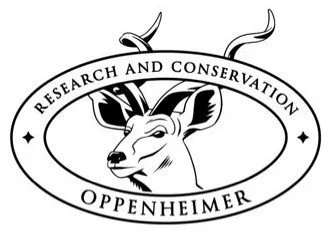ECOPHYSIOLOGY
The Mammal Research Institute (MRI) has been conducting ecophysiology research since 1970 under the auspices of Professor John Skinner and his associates who investigated the ecophysiology and behavioural endocrinology of large African mammals. This theme is led by Professor André Ganswindt, the MRI Director, and MRI Executive Committee member, Professor Nigel Bennett.
processing samples in the endocrine research laboratory
They work closely on several projects to address proximate and ultimate questions concerning regulative endocrine mechanisms in captive and free-ranging wildlife. Together they collaborate with approximately 60 international and national researchers as well as actively supervising and mentoring numerous Hons, MSc, and PhD students along with several postdoctoral and senior research fellows every year. Nearly 100 postgraduate degrees have been attained by students under their leadership!
When Prof. Bennett joined the MRI in 1995, he set up a radioimmunoassay laboratory for measuring hormones in plasma and urine samples in a suite of small mammals. He holds a full professorship in the Department of Zoology and Entomology as well as two prestigious positions, the Austin Roberts Chair of African Mammalogy (held since 2006) and the DST/NRF Research Chair in Mammalian Behavioural Ecology & Physiology (held since 2007). These two chairs bring academic prestige to the MRI as well as large numbers of fully funded postdoctoral and postgraduate students who are responsible for a significant contribution to the annual publications of the MRI.
collecting samples of elephant dung
Since Prof. Ganswindt joined the MRI in 2009 the field of wildlife endocrinology has been strengthened significantly. He established the Endocrine Research Laboratory as part of a collaborative initiative by the Faculty of Veterinary Science and the MRI. He is also Chair of the International Society of Wildlife Endocrinology, Vice-president of the Zoological Society of Southern Africa and Research Associate of both the Centre of Veterinary Wildlife Studies (University of Pretoria) and the SANBI National Zoological Gardens of South Africa.
The main areas of interest within the Ecophysiology theme are male reproductive behaviour and its endocrine correlates in terrestrial megaherbivores (alternative reproductive tactics), physiological correlates (mainly hormones) in wildlife of processes like climate change, land transformation and urbanisation, welfare aspects related to wildlife management as well as population dynamics of, and environmental, micro-climatic, physical, social and reproductive challenges experienced by, the Bathyeridae (African mole-rats) that live exclusively underground.
Professor Ganswindt holds the Oppenheimer Chair for Emerging African Scientists in Non-invasive Wildlife Research. The Chair provides postgraduate opportunities for young African scientists within the MRI. Research focuses on devising scientific methods for conducting physiological research without affecting animal health, and using these methods to determine how human stressors affect animals, thus ensuring improved management policies for wildlife conservation, tourism and captive breeding facilities.




